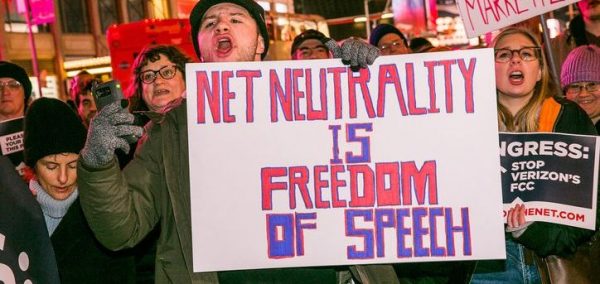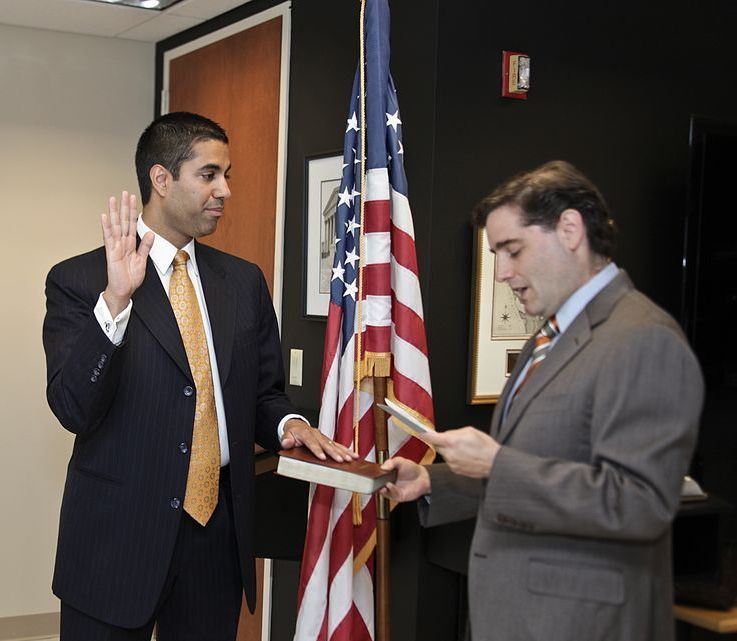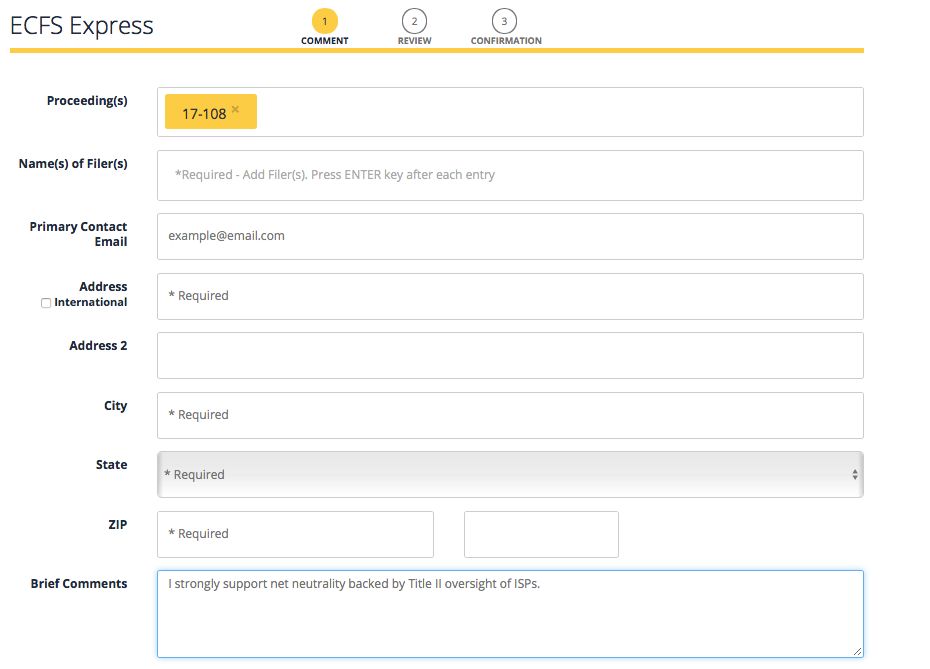
Forget about finals: the FCC votes on net neutrality tomorrow
What to know before the vote
On December 14th, the Federal Communications Commission (FCC) will vote on whether to repeal the strong network neutrality regulations set in place during the Obama Administration. Without these regulations, Internet Service Providers (ISPs) will have much more control over Internet usage. Since the FCC's announcement of the vote, tens of thousands of articles and opinions have been posted online, defending and stressing the importance of net neutrality.
What is net neutrality?
Net neutrality is legally based on the Title II of the amended Communications Act of 1934. Amended, the act covered broadband telecommunications and promoted competition among telecommunication companies. Title II itself pertains to the equal access of Internet information. In February 2015, the FCC voted in favor of the Open Internet Order, an act that classified broadband as a telecommunication service using Title II of the Communications Act of 1934.
Title II is the core of net neutrality. It prevents ISPs from blocking certain content or services, intentionally slow down Internet service, prioritizing content that they are affliated with, and offering faster service or more broadband in exchange for payment.

Former FCC Chairperson Julius Genachowski swearing in Ajit Pai (left) as an FCC Commisioner in 2012. Pai became Chairperson in January 2017.
In January 2017, President Donald Trump appointed Ajit Pai as Chairperson of the FCC. In April 2017, Pai announced his intention to end net neutrality by reversing Title II regulations, as he (and many others) believe that net neutrality is an unnecessary regulation, vulnrable to bandwith overuse, deter ISP competition, and reduce investment.
So what happens on the 14th?
This Thursday, the FCC will convene to vote on whether or not to reverse Title II. The FCC is comprised by 5 commissioners: Chairperson Ajit Pai, Brendan Carr, Mignon Clyburn, Michael O’Reilly and Jessica Rosenworcel.
Chairperson Pai, Carr, and O’Reilly are expected to vote for the repeal of Title II, while Clyburn and Rosenworcel are expected to dissent and vote against. Majority rules, so with the expected 3-2 ruling in favor, ISPs would no longer have to abide by net neutrality laws.
NYU students, this affects you
It's the penultimate week of the semester. Cramming for multiple exams, sending urgent emails to professors about ambiguous final assignment details, calculating how many cups of coffee is safe to ingest over a six hour period, and scrambling to find a syllabi leaves very little room for anything else (except crying and sleeping). Why worry about the vote?
Think about what will happen there is a surcharge to access Netflix or Hulu. Some of your peers will pay the extra, and some will forgo access to these streaming services. As comforting and habit-inducing as it is, binge watching TV shows is not paramount to surviving college. But what if you have to pay more for Facebook or Gmail? What happens if you have a research paper due in a couple hours and your ISP is slowing down traffic to JStor or WorldCat? Without net neutrality, ISPs are legally allowed to created Internet service packages similar to cable TV packages, where Internet users have to pay more for certain sites, and are allowed to slow down your Internet access depending on how much you pay.
If Title II is repealed, what will NYU do? Will tuition go up because NYU has to pay extra for access to all websites? Would NYU even pay their ISP to access all websites? Commuter students, if you cannot afford to pay for access at home to websites you need for homework, how will you have to change your schedule to maximize your time using the Internet on campus?
You have an official platform to defend net neutrality
You can post on your Finsta about the FCC. You can retweet a celebrity's well-worded call to action that demands neutrality. You can write a long Facebook rant. But you can also file an express comment on the FCC's website. Take a break from studying to voice your opinion.

The FCC submission form to file an express comment
The FCC has an official filing form on their website, for the purpose of receiving comments regarding legislature and issues. For “Proceeding(s)”, type in the FCC's proceeding number for net neutrality, 17-108. In the drop-down menu, select the option, “17-108 | Restoring Internet Freedom". Fill out the rest of the form with your personal information. Be aware, however, FCC proceedings are public record, and once your comment is filed, anyone who views your comment can view your name and address.
For "Brief Comments", if you are not sure what to say, try watching Last Week Tonight with John Oliver's second episode about net neutrality. Oliver, the show's host, says to write "I strongly support net neutrality backed by Title II oversight of ISPs". You can also read over 23 million comments already filed on the FCC's website. The comments show a variety of reasons why people believe in net neutrality.

Net neutrality supporters in Seattle
If you do not want to write a comment to the FCC, you can use the website Battle for the Net to get in contact with Congress via email or phone. The website also has suggestions on how to "break the Internet" to get the FCC's attention before their vote on the 14th. The net neutrality vote affects the future of Internet rights. Make your voice heard.
